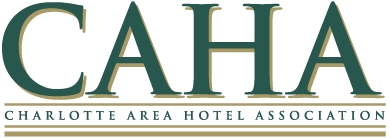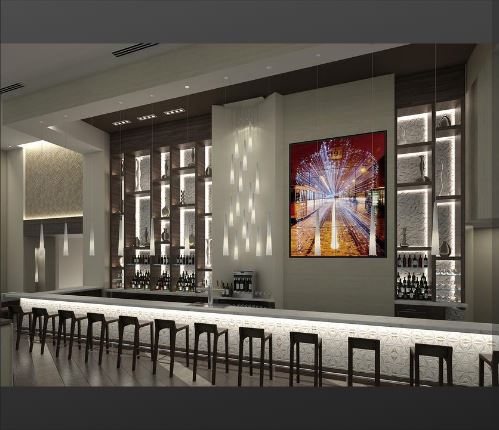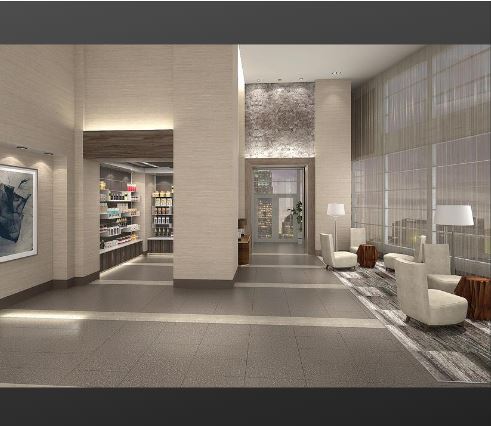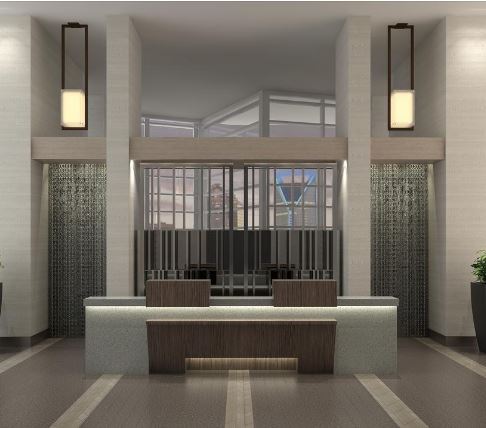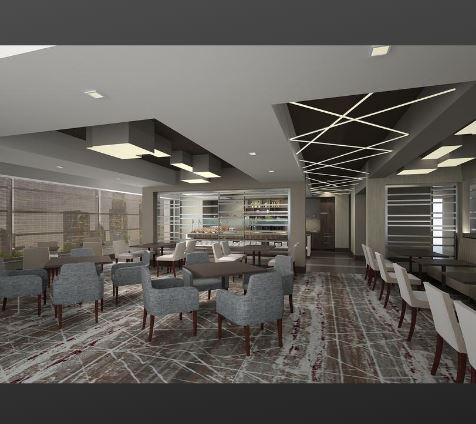Atlantic Coast Conference commissioner John Swofford came to Charlotte on Wednesday to help start the hype machine on another season of college basketball. Predictably, it turned into one of Swofford’s toughest assignments in his 21 years running the Greensboro-based ACC.
The reason? College basketball, including schools in Swofford’s conference, faces tawdry bribe and fraud allegations as part of a recently disclosed FBI investigation — and the uncertainty of more revelations surfacing in the months ahead.
It’s been a long month for Swofford and everyone else in college sports. On Sept. 26, the ACC commissioner was wrapping up a meeting with athletic directors in Washington when phones began lighting up with text messages and news alerts detailing the extensive accounts of corruption and cheating in college basketball. Everyone was shocked by what they heard, Swofford recalled.
In September, the FBI arrested a handful of assistant coaches at prominent college basketball schools while publicly unveiling findings from undercover probes. The revelations included detailed accounts of pay-to-play schemes designed to steer players to specific schools based on kickbacks among various middlemen, shoe companies, coaches and amateur team organizers.
Among the most noteworthy developments in the federal probe: Louisville, an ACC member since 2014, fired its men’s basketball coach, Rick Pitino, and its athletic director, Tom Jurich, in part because of possible recruiting violations and payoffsfollowing separate, recent rules violations.
Louisville — already facing the prospect of losing its 2013 national championship because of a sex-escort scandal involving recruits and the basketball program — benefited from a pay-to-play arrangement that included an alleged $100,000 payment to a top recruit who signed with the school to play basketball, according to numerous reports based on thinly veiled descriptions in the initial investigation disclosure.
Nearly all of the questions Swofford faced from reporters on Wednesday in Charlotte regarded the plausibility of effective reforms within the sport and concerns about other findings that could emerge from the federal investigation. The commissioner said he doesn’t believe cheating and violations are “rampant” in college basketball while calling for officials at all levels — amateur, college and the NBA — to work together to usher in reforms.
An NCAA committee formed this month and led by former Secretary of State Condoleezza Rice as well as an internal ACC group studying possible changes to reduce cheating in college basketball should help improve the situation, Swofford said.
This month, another ACC school, UNC Chapel Hill, escaped NCAA sanctions in a long-running academic fraud scandal that included revelations of numerous football and men’s basketball players maintaining their athletic eligibility by taking sham courses. Critics, and there are many, pounced on what they described as legal loopholes that allowed UNC to avoid major penalties despite an investigation that showed a large number of the students taking the so-called “shadow classes” over an 18-year period were athletes.
The 15-member ACC is one of the Power Five conferences in college sports that account for high-revenue TV rights fees, corporate sponsorships and send their schools to the men’s Final Four and the College Football Playoff on a regular basis.
Beyond the recent scandals, Swofford, as head of the ACC, works with university presidents and athletic directors to find new sources of income, retain and increase existing media and corporate alliances and steer the league so that it can compete with its peers in the SEC, Pac-12, Big Ten and Big 12.
Charlotte has long been a second home of sorts for the ACC. The conference football championship has been played at Bank of America Stadium since 2010 and is under contract here through 2020. The lone exception: last year, when the ACC Football Championship moved to Orlando because of controversy over House Bill 2 in North Carolina. Soon after the state repealed the law — which limited anti-discrimination protection for LGBT people — in March, the conference said it would return to Charlotte beginning in December 2017.
In 2019, Spectrum Center, the NBA arena in uptown, will host the ACC men’s basketball tournament. When that happens, Charlotte will have hosted 13 times, second only to Greensboro. (Raleigh’s Reynolds Coliseum, then the home of N.C. State, hosted the first 13 ACC tournaments from 1954 through 1966. The conference later moved to neutral-site venues.)
ACC football teams have been a constant in Charlotte’s annual Belk Bowl, played since 2002. In September, N.C. State played South Carolina in a Labor Day kickoff game at Bank of America Stadium, part of a series of annual opening weekend games in Charlotte that will often, but not always, feature ACC schools.
The city’s biggest ACC loss since the HB2 boycott last year was the recent decision by ESPN to base most of its ACC-dedicated cable TV network at the media company’s Connecticut headquarters instead of Ballantyne. ESPN’s satellite location here is home to its SEC-branded cable network, but financial pressure caused by subscriber losses and other factors led to the ACC Network not being housed here. Previously, Swofford expected the network to be here. It is scheduled to go on the air in 2019.
Charlotte’s BB&T BallPark could be in line to land future ACC baseball tournaments, Swofford said, noting that the conference will soon decide whether it wants to stay at its current site in Durham or rotate among cities in its next cycle of tournaments.
Durham’s Triple-A baseball stadium has the ACC tournament through 2019.
The ACC tournament was played at Knights Stadium in nearby Fort Mill in 2000 and 2001. BB&T BallPark opened in 2014 and, unlike its predecessor, is located in uptown within easy walking distance of hotels and restaurants for fans and teams. Another factor that could help Charlotte’s baseball bid: ACC school Duke plays its home games at the Durham Triple-A stadium, a situation that rankles some rivals and could motivate them to try a different venue.
Swofford spoke at The Ritz-Carlton here as part of the annual ACC men’s basketball media day and then discussed a range of business issues with CBJ in a separate one-on-one interview. Below are excerpts from our discussion, edited for length and clarity.
On whether the scandals have caused concerns among ACC sponsors: I haven’t heard a word from any of them.
On whether the scandals could affect the popularity of college basketball: I don’t think so, I don’t think we’re anywhere near that.
In the worst-case scenario, I think you could get to that point. One of the things we always have to protect, particularly in college athletics, is the trust factor with our fans and supporters.
Because they want to support their school and feel that their school is doing things the right way. If you ever undermine that trust with your fan base, particularly in college athletics, it can have negative implications from a pure business standpoint.
I don’t think we’re anywhere close to that. In the worst-case scenario, it could get to that.
On how he learned of the FBI findings: I was in a meeting in Washington with our athletic directors on the morning this came out and literally started popping up on the phones as we were concluding our meeting. And it was, like, what in the world is this? Because nobody had any inkling of it.
Now, you can have concerns about, “Yeah, there’s something that doesn’t look right over here” or “Something’s going on here,” but you don’t expect a federal investigation into bribery, et cetera, related to college sports.
I think anybody who said they expected that would be less-than-honest. I certainly didn’t expect it.
You don’t expect a federal investigation. That takes it to a whole other level.
On dealing with the bribery and academic scandals:It’s issues that you’d rather not have in the first place. But, when they’re there, you deal with them and you deal with them as effectively as you can and you move on. It’s not a fun part of what we do. But, unfortunately, it’s a necessary part, periodically, and so you do the best you can possibly do.
On the ACC Network: I could not feel better about the lead-in to the launch. The Altice (carriage deal with ESPN) was significant (because the No. 4 cable company agreed to carry the new ACC Network when it goes on the air in 2019). And (Altice) had not taken the SEC Network (also owned by ESPN) previously.
And it’s New York City (cable subscribers, too).
We’ve had superb meetings in terms of beginning discussions of how we connect the different aspects of the channel. We’re beginning discussions about the marketability of it, the sales aspect of it, what we want it to look like, what personality do we want it to have. And the energy I see at ESPN is off the charts — they see this as a huge opportunity just like we do.
This is a tremendous opportunity for ESPN to grow and to grow revenue and there aren’t but so many of those.
On the return of the ACC Football Championship: I was worried about it, (but things look) great. Last year when we made the decision to leave (because of HB2), we were ahead of any other year in (advance) ticket sales since the game had been in Charlotte.
Just from a pure business standpoint, that made the decision even tougher. But, we’re above that pace (in 2017) and I wasn’t sure we could do that.
I thought coming back a year later — I didn’t think Charlotte was going to abandon us or anything like that — but I didn’t think we’d keep the same pace. But we’re in the best shape we’ve ever been.
On the future of the football championship: I would be very surprised if we didn’t (stay in Charlotte beyond 2020). We’ll get out ahead of that by several years.
On the ACC basketball tournament’s future in Charlotte: I don’t know (whether it will be 11 years between tournaments here in the future). My guess is it will probably be a little more frequent. This next rotation that we will make a decision on will be kind of telling.
I don’t think any of us have any doubt that Charlotte will be an excellent experience. Washington (in 2016) was outstanding, New York (last year at Barclays Center in Brooklyn, where the 2018 tournament will also be held) was an excellent experience.
My guess is it’ll be more frequent (than it has been in Charlotte of late).
The newer members of our league, they’re used to the Big East tournament (that was played in New York). They’re used to airport accessibility, they’re used to good restaurants and hotels in close proximity — Charlotte fits the bill on all of that.
And the size of Spectrum (Center) fits us well. We won’t go back to a dome (as the ACC did in Atlanta in 2001 and 2009 at the Georgia Dome). We’ve been to Atlanta since then, but we went to (the NBA arena there).
Erik Spanberg
Charlotte Business Journal
